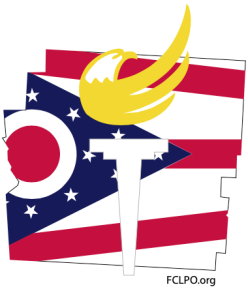Book Review
Libertarian review that highlights books on individual freedom, limited government, free markets, and personal responsibility. It critiques works from diverse genres, promoting independent thought and offering insights into libertarian ideas and their real-world impact.
Robert W. Poole’s Cutting Back City Hall offers a roadmap perfectly aligned with the Libertarian Platform’s vision of reducing government spending, eliminating taxes, and improving the quality of services. Poole demonstrates how local governments have monopolized services that could be better managed through privatization, voluntary efforts, and market-driven solutions. His work shows us how to take back control of essential services, empower communities, and eliminate wasteful government bureaucracy.
Breaking Government Monopolies
One of Poole’s central arguments is that municipal governments maintain monopolies over services like waste collection, public safety, and road maintenance. These monopolies create inefficiencies, drive up costs, and reduce service quality. As Libertarians, we know that competition and market forces outperform government monopolies. By allowing private companies to compete for service contracts, we can introduce innovation, drive down costs, and give residents real choices. Instead of being forced to pay for services that may not meet their needs, individuals and communities can choose providers who deliver better results.
Voluntary Funding and User-Pay Models
Poole advocates replacing tax-funded services with voluntary payments and user-based fees. This approach reflects our core belief that individuals should only pay for services they use, rather than being coerced through taxation. When people pay directly for services—whether through user fees, membership models, or subscriptions—they have an incentive to demand quality and efficiency. We can promote voluntary funding for essential services such as libraries, parks, and road maintenance through community-supported initiatives and user-pay systems.
As an example, replacing property taxes that fund public services with bundled payments on water, electric, and gas bills can make funding more transparent and directly tied to service quality. This not only reduces government intervention but also encourages people to take ownership of the services they value most.
Leveraging Volunteerism and Community Engagement
Poole highlights the potential for volunteer efforts and community organizations to take over many public services. As Libertarians, we recognize the power of civil society to solve problems without government interference. Volunteer fire departments, neighborhood watch programs, and local education initiatives show that communities can thrive when people are empowered to contribute directly. By promoting community-driven solutions, we can reduce dependence on government while strengthening social bonds and civic responsibility.
We can encourage businesses and nonprofits to take an active role in sponsoring and maintaining public spaces, funding education programs, and providing safety initiatives. These voluntary contributions not only reduce the need for taxes but also create a stronger, more engaged community.
Decentralization and Local Control
A core principle of the Libertarian Platform is decentralization, and Poole emphasizes its importance in managing public services. When power is returned to local communities, services become more responsive, innovative, and efficient. By breaking down large, unaccountable bureaucracies and giving communities control over their own resources, we ensure that decision-making reflects the unique needs and desires of those affected.
We can advocate for the dissolution of state-mandated service monopolies and push for local communities to make decisions about how best to provide essential services. Whether through cooperative models, private contractors, or volunteer organizations, local solutions outperform top-down government programs.
Addressing Concerns About Privatization
Critics of privatization often argue that it benefits wealthier communities and leaves others behind. Poole addresses this by demonstrating that market competition drives down costs, making services more affordable for everyone. As Libertarians, we can reinforce this by promoting models that offer tiered pricing, scholarships, and sliding-scale fees to ensure access without relying on government coercion.
Furthermore, opponents claim that voluntary systems will lead to gaps in service. However, history shows that when people see the direct impact of their contributions, giving increases dramatically. Voluntary contributions often surpass coerced taxation in both quantity and effectiveness, as people are more willing to give when they trust where their money is going.
Conclusion
Cutting Back City Hall provides a comprehensive framework for dismantling bloated local governments and replacing them with voluntary, market-driven solutions. Poole’s vision aligns with our Libertarian values of limited government, individual freedom, and personal responsibility. By promoting privatization, voluntary funding, and community-driven initiatives, we can eliminate unnecessary taxes while raising the quality of services provided. As Libertarians, we have an opportunity to apply these principles, empower our communities, and demonstrate that freedom and choice yield better outcomes than government control ever could.
Check out for yourself: https://a.co/d/aLeuykQ



